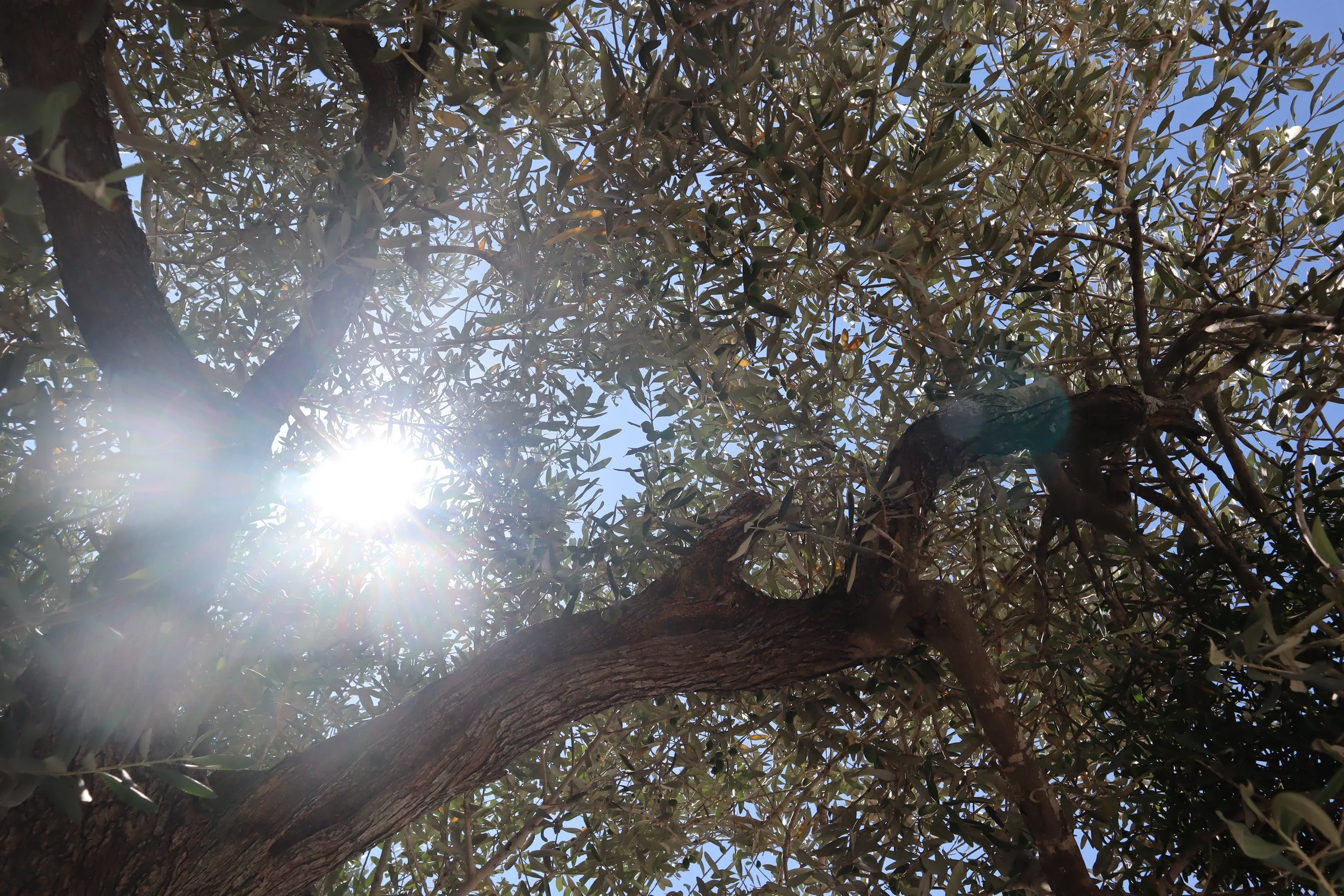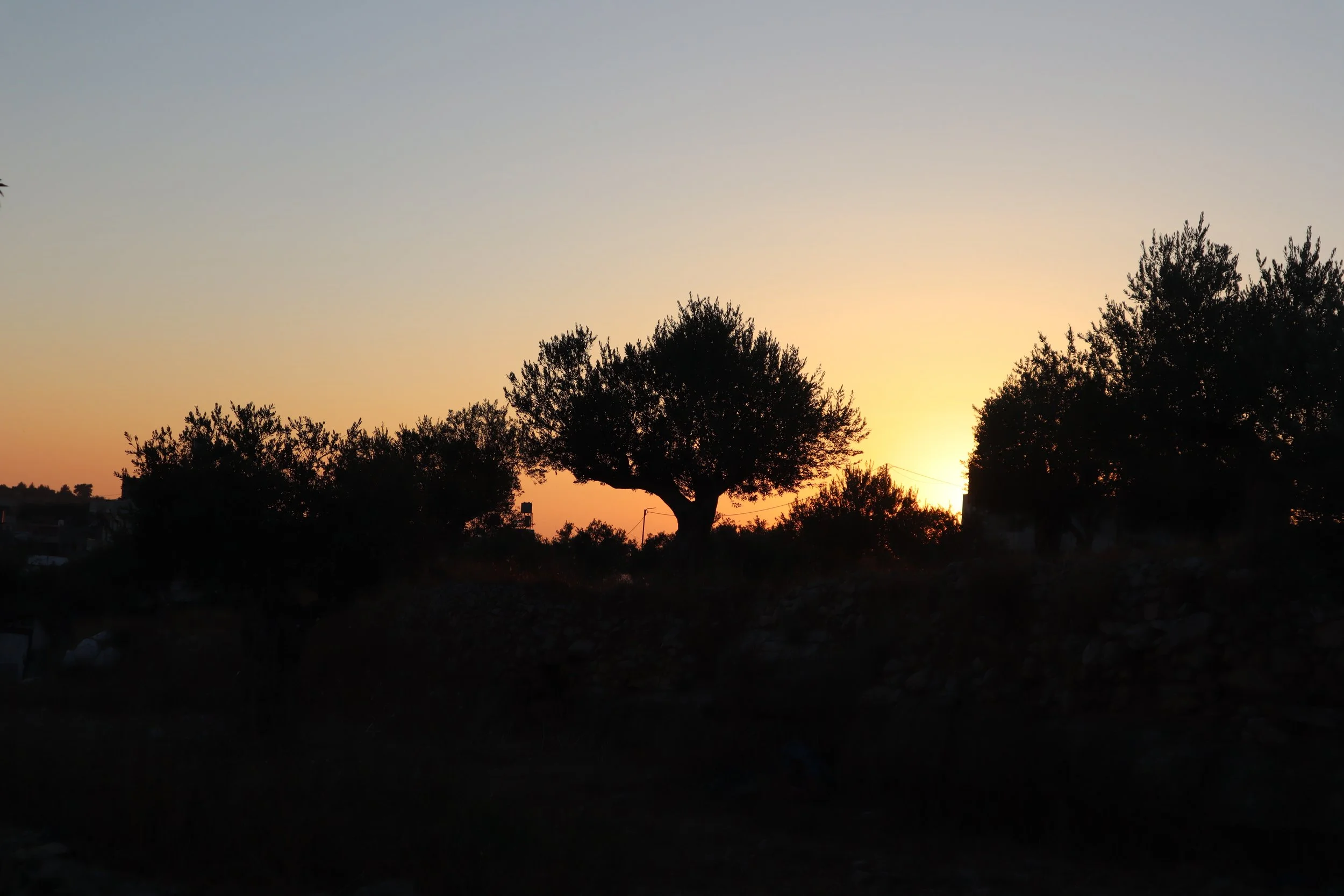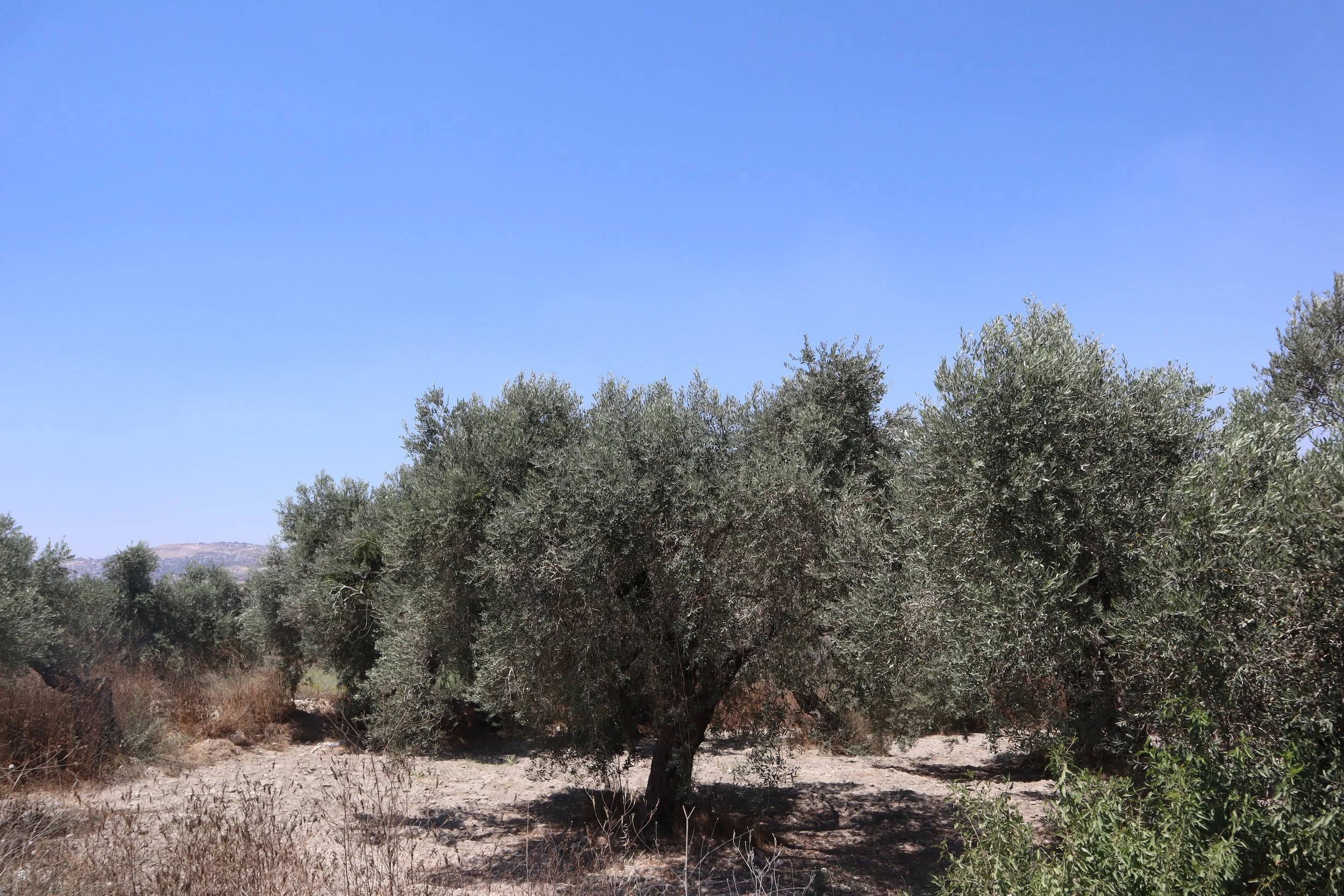Olive Trees and Checkpoints
Next time somebody asks me where I’m from,
I’m going to tell them:
I’m from a land full of mountains covered in olive trees, surrounded by three seas, and watered by my grandmother’s tears.
I never liked politics. I still don’t.
But growing up in Palestine, politics wasn’t a choice.
It was the air we breathed. The news that interrupted our sleep. The damage that lingered long after the soldiers left.
Politics wasn’t solely a topic confined to a classroom. It followed me into my dreams, my meals, my walks from school, the sounds outside my window.
Politics shaped every part of daily life.
As a child, I saw things no one should have to see: people killed… homes destroyed… friends abducted.
I recall I was four years old when a soldier pointed their gun at me.
That kind of violence doesn’t fade from memory. It carves itself into bones and engraves itself into skin.
And still, I hesitate to “talk politics.”
Because when I think of home, I think of more than the pain.
I think of the wind in the mountains. The taste of fresh golden olive oil with za’atar on warm bread. The songs playing on the radio during olive harvest season.
My mother embroidering a dress. Her hands steady. Her back straight.
My grandmother, humming to herself as she watches the sun go down.
The stubborn joy of people.
I hold all of that in my heart because that’s the essence of Palestine.
And it is pain.
Pain that comes with being deprived of water, of electricity, of movement.
Pain that comes with being told your life is a negotiation.
Pain that comes when you’re 6,000 miles away and you try to call your cousin, only to hear her whisper:
“I can’t talk. There are soldiers raiding our university.”
This is what colonization looks like.
Not just walls and bullets, but the quiet, endless control.
Controlling how you move, what you learn, what you hope for…
It’s a theft of time, of thought, of possibility.
It is terrifying.
I’m terrified of going back one day and not recognizing the land, the people, even myself.
Terrified that my family will be gone.
Terrified that my younger cousins might grow up not knowing what freedom even feels like — only the shape of its absence.
That our memories will be rewritten.
That our truths will be buried under someone else’s “neutral perspective.”
And it is exhausting.
Exhausting to look at things from “different perspectives” when reality is crystal clear.
Exhausting from carefully shaping words around suffering, adding trigger warnings, trying to find words in English that makes the unspeakable sound palatable.
Because God forbid a privileged person feels even a moment of discomfort when confronted with the truth.
I’ve studied my history.
I’ve listened to endless stories.
I’ve sat in rooms full of people who try to justify my pain.
But none of that erases the 18 years I lived under occupation.
None of it quiets the grief I carry,
or the images that still wake me at night.
There is no “other side” to being dehumanized.
Living between home and the diaspora feels like splitting yourself in two.
One version smiles at strangers,
remembers how my Palestinian roots taught me to be kind, hospitable, and warm to all.
The other version is still there… in the hills,
sipping mint tea with the memory of my grandmother.
Perhaps stuck in the past… her grave now lies there,
in a cemetery on a hill overlooking orange sunsets.
And sometimes, I am forced to choose.
To shrink.
To forget.
And so I freeze, temporarily.
Paralyzed by the weight of a painful past, a surreal and hypocritical present, and an unknown future.
But I proceed.
Because no one else gets to name me.
No one else gets to measure the weight of my memory.
I am not hateful.
I do not seek your pity.
I carry truth.
And I remember — fiercely, deliberately — because memory is a form of survival.
It is how we stay whole.
So I let the familiar Mediterranean breeze pass through me from thousands of miles away,
uncaught by barbed wire, checkpoints, walls, or bureaucracy.
And I remember:
I am from a land full of mountains covered in olive, fig, and orange trees,
surrounded by three seas,
and watered by my grandmother’s tears.
About this piece:
This piece was originally written in 2019 during my college years, as a response to the exhausting questions I often faced about where I’m from, and how difficult it can be to find an answer that fully captures the complexity of that identity. I grappled with how deeply political my very existence felt, and how my simple truth sometimes made others uncomfortable. I was cautious with my words, careful to speak facts while navigating painful realities.
As a Palestinian, you don’t just live your traumas; you relive them every day. Yet the world often refuses to validate that pain. You carry the weight of suffering and the work of healing largely on your own, all while searching for the right words and phrases that might offer the smallest hint of understanding or acknowledgment from others.
At the time, I felt many people weren’t ready to read something so critical. I hope that now, in 2025, readers are more open to truly listening and understanding. This version has been thoughtfully polished and edited to better reflect my voice today with the hope it resonates with Palestinians in the diaspora and offers insight to those seeking to understand our shared experience.


